How to Make Beans Less Gassy | 4 Easy Methods
We have all heard the little ditty… “Beans, beans the musical fruit the more you eat the more you toot.” Not everyone wants to consume foods that will make their tummies speak for them though. Thankfully there are some great tips out there to make beans less gassy, helping to silence the musical fruit.
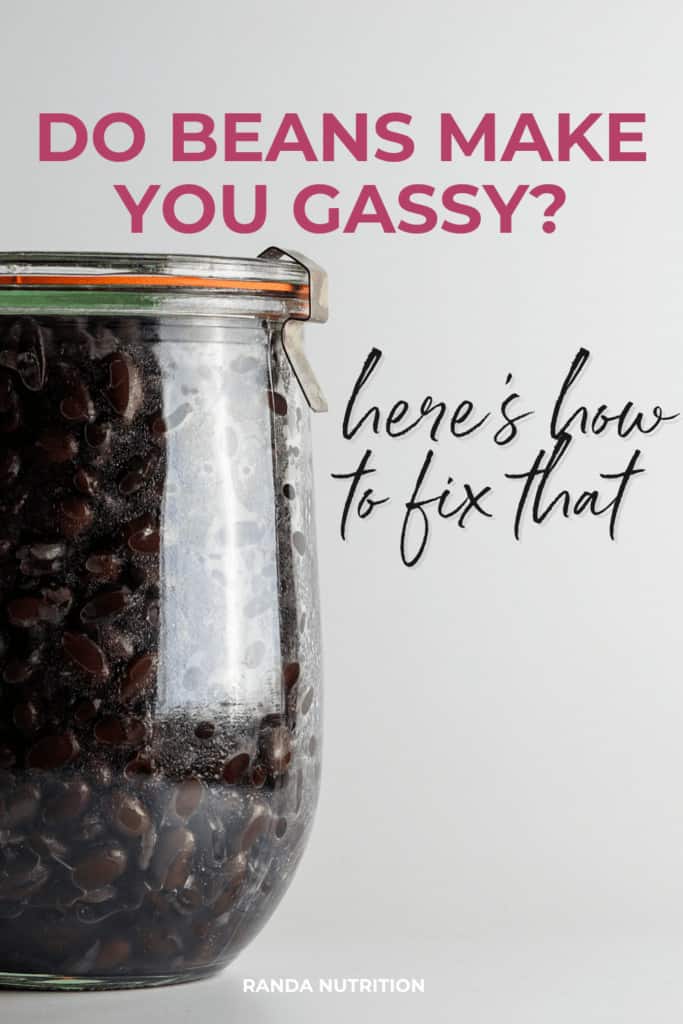
Dried beans are actually wonderful for you.
Nutritionally speaking they are high in fiber, protein, and even packed full of antioxidants.
They’re also a great way to make budget-friendly dishes, as dried beans and legumes are less expensive than canned beans.
Studies have shown that people who consume more legumes technically have a higher quality diet overall. In fact, consuming beans can help to reduce risk factors for some diseases and help you to control your weight.
While beans come with some great benefits, they can also be the source of rather intense digestive issues, causing quite a large amount of gas.
There are ways to enjoy them without having to worry about the intense gas that comes with them.
Beans and Gut Health
A healthy gut is one of the keys to ensuring that your body is getting the proper nutrition that you need from your food.
If you have trouble properly digesting the things you eat then your body isn’t able to use the nutrients from them.
While things like probiotics can help, preparing your foods the right way can also help to aid in proper digestion.
Knowing things like how to make beans less gassy can be incredibly helpful to your gut health.
While the song that goes along with eating beans can be somewhat funny, the reality of it all has to ability not to be.
What Makes Beans So Gassy?
When it comes to degassing beans it is rather important to understand what causes the issue in the first place. Beans contain oligosaccharides, including raffinose.
These big and somewhat daunting words mean that beans contain rather large molecules of sugar that can’t be digested or properly broken down within the small intestine.
The sugar then passes undigested through the colon (large intestine). This is where it becomes fermented by the “good” bacteria that your colon contains and produces gas as a by-product.
This is why you could experience flatulence whenever you eat beans (and with some people peas, chickpeas, split peas, and lentils).
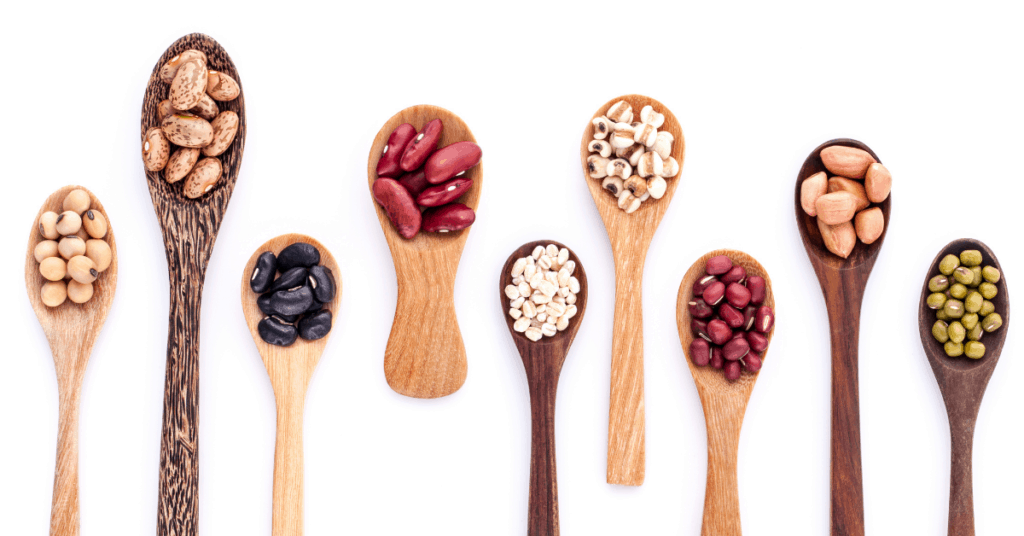
How to Make Beans Less Gassy
Pressure Cooking The Beans
If you own a pressure cooker or Instant Pot, using one to make beans less gassy is a possibility. This is because they can help to break down the sugars within the beans to eliminate the unwanted side effects.
How to Cook Beans in the Pressure Cooker
Step 1: To use a pressure cooker to degas your beans, you will want to start by soaking them for 4-8 hours. Once the beans have been properly soaked, drain them well and give them a quick rinse.
Step 2: Once properly rinsed, place them in the pot of your pressure cooker and add water. You will want the water to be at least 2 inches above the beans. You can flavor your beans here by adding spices (I love cumin, chili powder, garlic, etc to black beans or pintos).
Step 3: Set the pressure to high or the highest cooking method based on your appliance and cook for 10 – 12 minutes. Once done, perform a natural pressure release. You could use rapid release but you don’t want to end up with a foamy mess, so just allow them to release on their own.
Step 4: Simply drain and rinse them and they are ready to use in your favorite recipe.
Soaking for an Extended Time
Soaking beans is one of the best and easiest methods to use to de-gas your beans (source).
It is so simple that you will probably choose this one. It does however take quite a bit of time, so if you are stuck on that, the pressure cooker method is probably the best one.
Step 1: Place your dried beans into a large container.
Step 2: Cover the beans with water and allow them to soak. They will need to soak for at least 8 to 12 hours.
Step 3: Keep in mind that the key to ensuring that the gas is eliminated is to rinse and drain the beans every 3 hours. Drain, and rinse every 3 hours ensuring to discard the soaking water frequently. This will get rid of the excess sugar starch. Do not skip this step.
This method should work on all varieties: pinto beans, navy beans, etc.
Want to save this recipe?
Use Baking Soda
Adding a little baking soda to your recipe can help to decrease the gas beans produce. This is because it can help to break down some of those pesky, gas-producing sugars.
Step 1: Add a teaspoon of baking soda to about 3.5 Liters of water. Stir in your dried beans and bring them to a boil over high heat.
Step 2: Turn the heat off and allow the beans to soak for 4-5 hours.
Step 3: Drain and rinse several times.
Step 4: Use them in your favorite recipes.
Add in a Strip of Kombu
My friend Darcie from Your Pathway to Happiness caught my attention when she was cooking beans and added a strip of kombu. She mentioned in her stories the list of benefits and that included taking away the gas effect of beans.
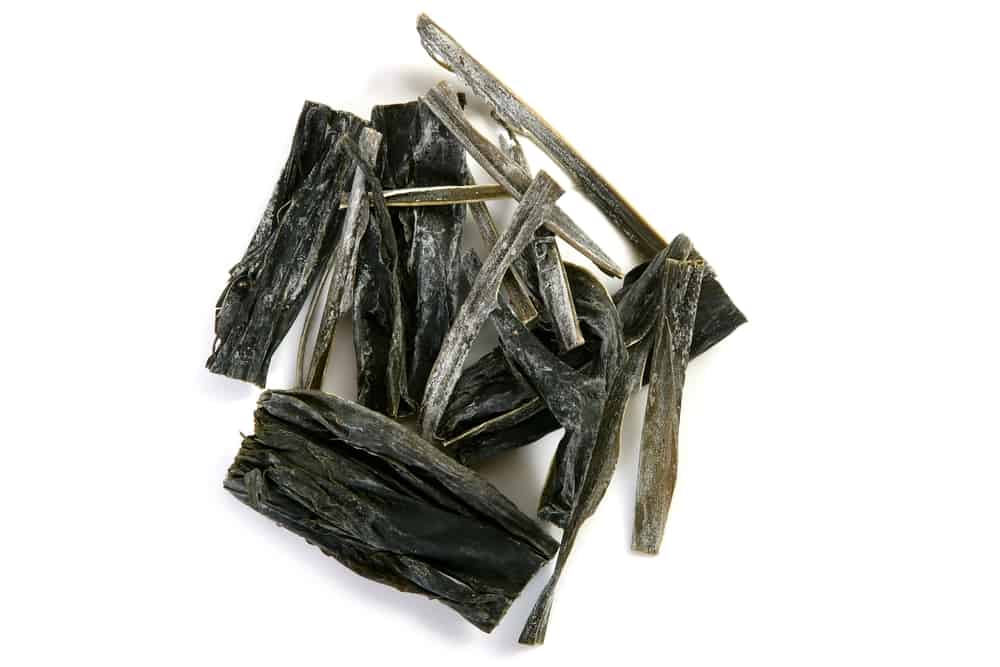
Whether you are cooking your beans on the stovetop or in your slow cooker, adding a strip of Kombu can aid in digestion and reduce the gas associated with eating beans.
This is because it minimizes the gas-producing effects that beans can have on people, especially those that struggle with frequent intestinal gas.
This gas and bloating are often produced because the individual is missing the enzymes that are required to break down the raffinose sugars that beans contain.
Kombu contains digestive enzymes and certain amino acids that can offer a more comfortable experience when consuming beans, allowing them to be digested much easier.
When it comes to beans, they certainly can be a healthy addition to your diet. If you want to avoid the gaseous side effects, there are several ways to do so.
Unless you have dietary issues, excluding beans from your diet is not a good idea as they have many great benefits.
Use the method to make beans less gassy that works for you and you will find those musical fruits aren’t so musical anymore.
How to Make Canned Baked Beans Less Gassy
Canning helps break down some of the sugars in the beans, so your favorite baked beans from the store are one step ahead.
If you’re not cooking beans from their dried state and using the canned variety, here’s how to make them easier to digest.
- Soak them in water before cooking. After you strain and rinse them, let them sit in water for a few hours. Change the water multiple times throughout the soaking process.
- Cook them with acid. It’s said that cooking them in something acidic will help reduce the gas (vinegar or tomatoes will work). This helps the sugars break down.
- Process them. You can blend them or mash the canned beans to help prevent gas. Hello, refried beans!
What to Put in Beans to Prevent Gas
If you’re using canned beans, and you’re wondering what ingredients to add to make them less gassy here are a few options:
- Turmeric
- Ginger
- Fennel
- Baking soda
- Kombu
- Carrot – it’s said that if you add this vegetable to your pot while you cook beans it helps reduce the gas. The carrot should not be peeled, but well washed to get all the dirt off it first.
How much baking soda do you add to beans to prevent gas? For every cup of beans, add a teaspoon of baking soda.
What Beans Cause the Least Gas?
If you’re looking for the least gassy bean, you’re best to cook with the following varieties:
Pulses like lentils and mung beans are a lower risk than you’re traditional beans.
Navy beans, chickpeas, and kidney beans are some of the beans that cause the most gas.
How to Relieve Gas from Beans
If you’re experiencing some intestinal distress and discomfort, there are a few options to ease gas.
- You could try Beano. This is an over-the-counter bean supplement that is found at most pharmacies.
- Sip on some ginger tea.
- Peppermint tea is another great one to have after a meal.
Bean filled recipes to try:
- Healthy Turkey Chili in the Ninja Foodi [Stovetop and Pressure Cooker options]
- Butternut Squash Chili Recipe
- Turkey Taco Skillet
- Mexican Quinoa Salad Recipe
CALCULATE YOUR MACROS IN SECONDS
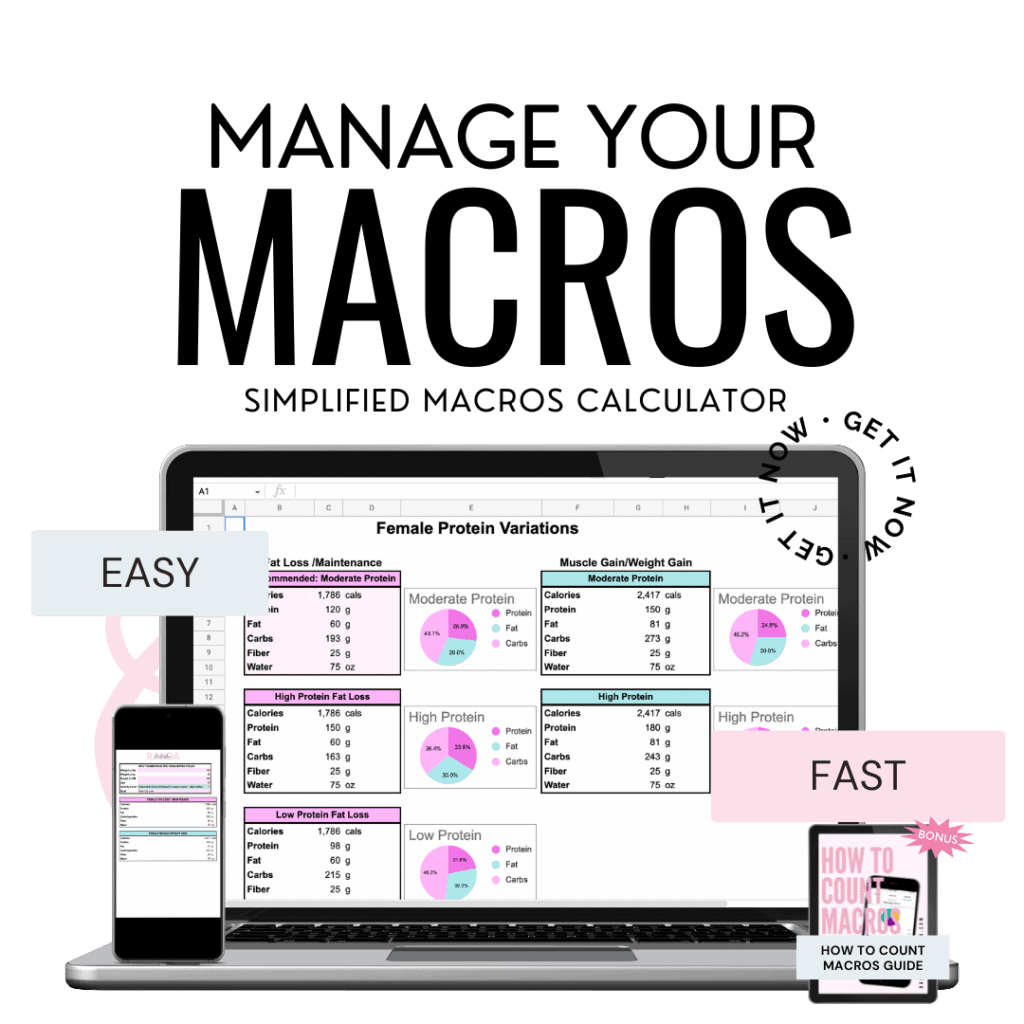
Ready to calculate your macros in seconds?
Stop guessing and flip-flopping between diets. Finally have a roadmap with this proven method!
This spreadsheet makes figuring out your macros, a piece of cake.
This post was originally published October 12, 2020, but has been last updated on January 18, 2023.

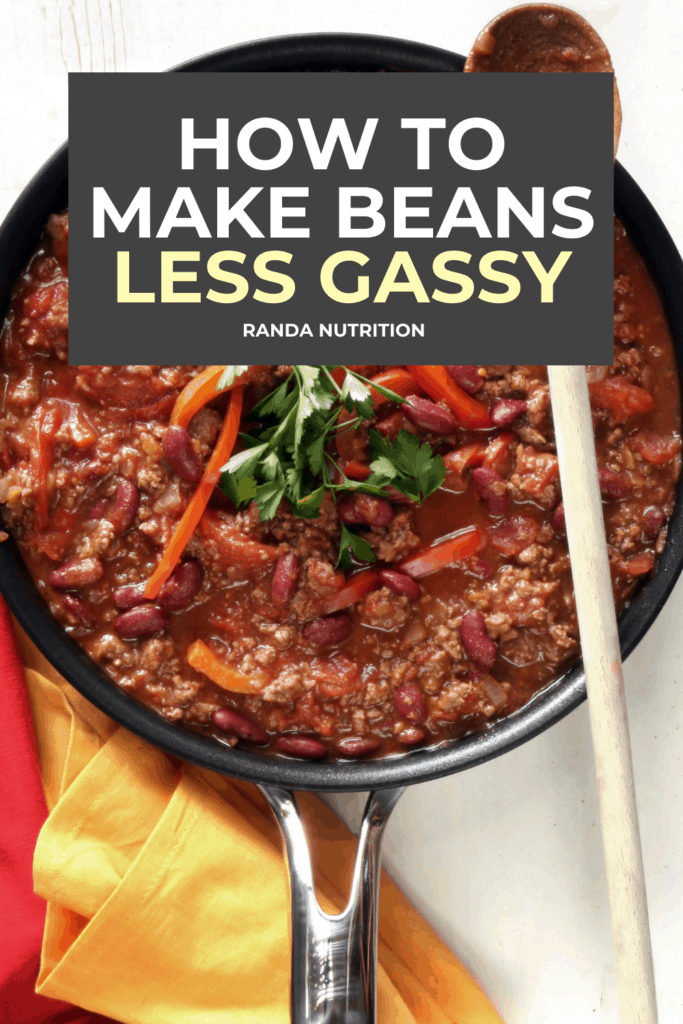


![Ninja Foodi Turkey Chili [Stovetop and Pressure Cooker options] 6 ground turkey chili recipe](https://randaderkson.com/wp-content/uploads/2019/11/turkey-chili-recipe.jpg)
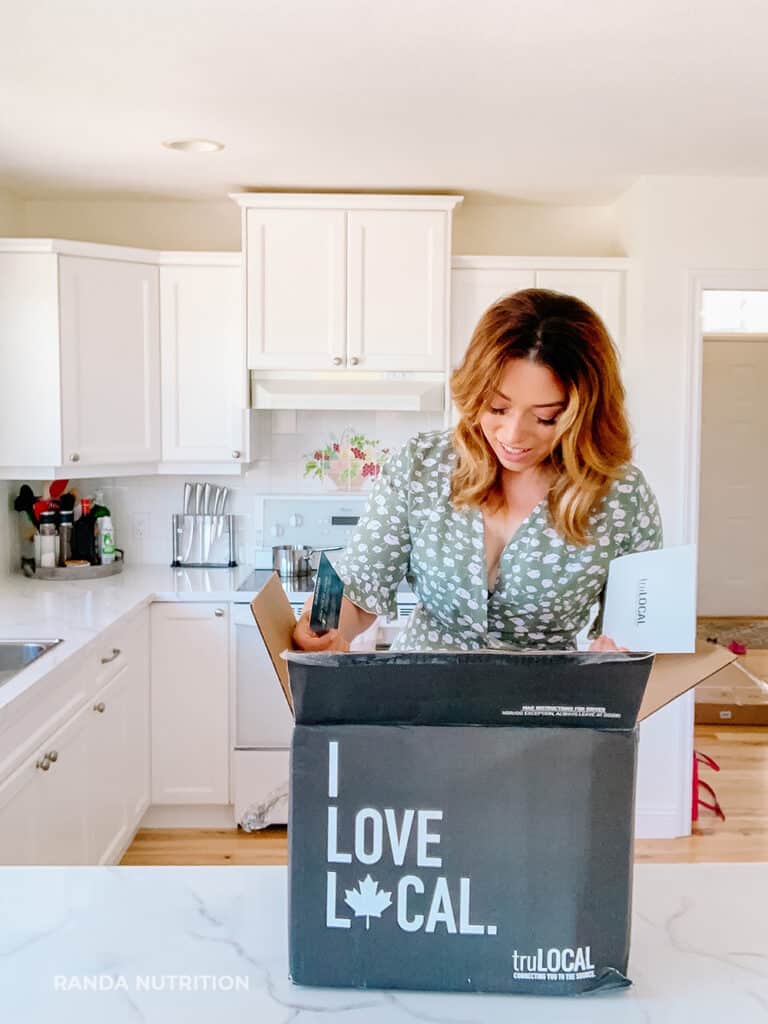

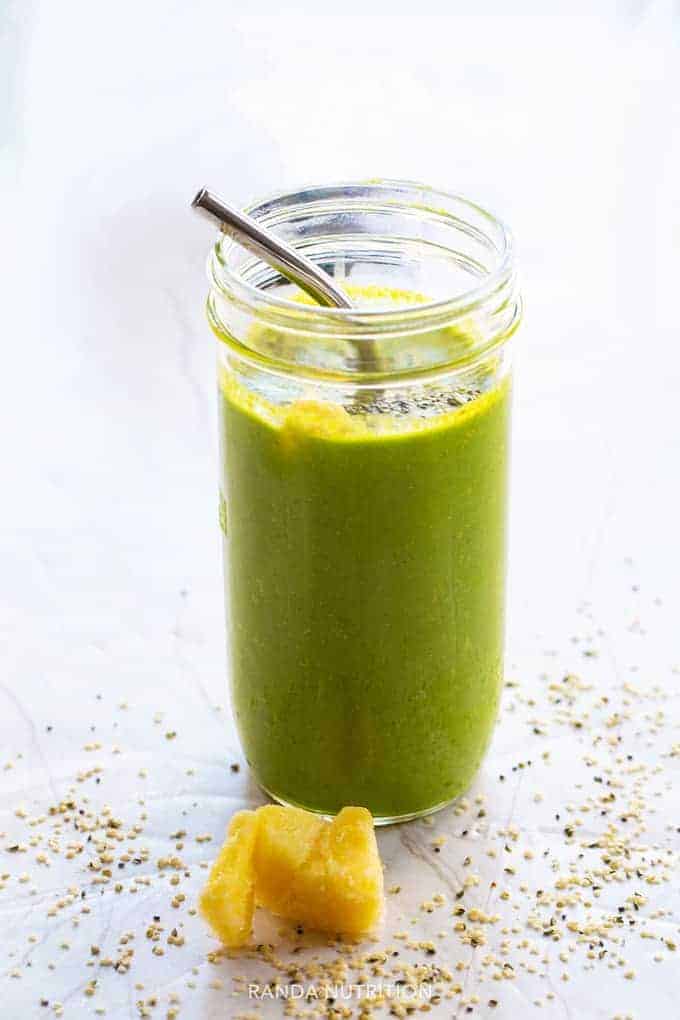

I ferment my beans on the counter for 4-5 days, draining and rinsing, then I add 1 tablespoon of raw apple cider vinegar each time
Oh that’s a great tip! Thanks for sharing.
I put 2 cups raw beans (500g), 1 teaspoon salt, 5 cups (2.5l) water and cook in pressure cooker for 80 minutes. Normally in morning and let them on warm until I get home from work in afternoon. No Gas ever. The key is to cook for a long time
We eat beans almost every night
Sorry. I meant 1.5 liters water.
I have also been told that if you eat beans regularly, then you won’t get gas because your digestive tract is used to them.
It can. However there are people that just have trouble with beans and these tips help out. There are some where even with these tips, they’re still a little gassy as well. Everyone is different.
Thank you so much for that Allan!
Hi. I’m looking for different method to degass on legumes during cooking in instant pot. My husband has serious issue on eating them. The most common method of cooking from manual book, cookbook, etc. won’t work for him. I would like to try on your method. You mention about length of time to cook with 10-12 minutes. Which legume you apply this to? What about kidney beans? I wonder if you have a list of cooking on kind of legumes. Thanks.
Hey Robin, I haven’t cooked kidney beans before so I quickly Googled and it said soaked kidney beans will cook in 60 minutes. Just make sure you soak them overnight. Try the kombu strip in it while you cook and see if that helps!